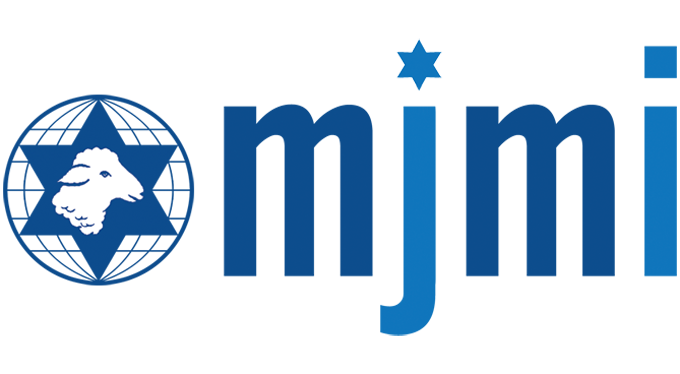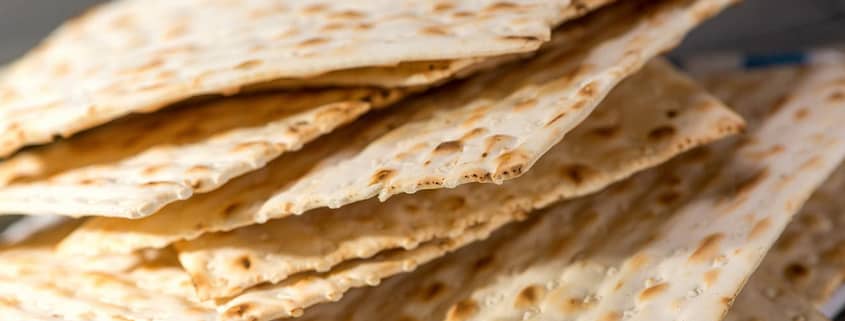The Matzah of Purity and Truth
As Passover approaches, Jewish families around the world will soon be cleaning the leaven from their homes and remembering how Adonai set them free from slavery in Egypt. With all the leaven removed, only unleavened bread—matzah—is allowed to be eaten. The matzah is a tangible sign and an ever-present memorial during this season, so that all the generations of Israel will know “what Adonai did for [them]” with His strong, mighty hand (Exodus 13:7-9). But for followers of the Messiah, this memorial also serves to remind us of an even greater freedom, while the command to remove the leaven reaches further and deeper.
“Have you not known that a little leaven leavens the whole batch of dough? Clean out the old leaven, so that you may be a new batch of dough, because you are unleavened; for our Pesach—Messiah—was also sacrificed so that we may keep the Feast, not with old leaven, nor with the leaven of evil and wickedness, but with the matzah of purity and truth.”
(1 Corinthians 5:6b-8, mjlt)
Using leaven as a metaphor for “evil and wickedness,” Paul exhorts us to clean out the leaven from our lives. Just as all leaven is to be removed from the entire territory of Israel during the Feast, so also must we have all the sin removed from our hearts, cleaning out every single crumb. Why must we be so meticulous? Because “a little leaven leavens the whole batch of dough.” In the same way that a small spoonful of yeast completely changes a batch of dough, so also sin lingering within us will change us into something contrary to who we are in Messiah. Paul explains that Yeshua—through His Passover sacrifice—has removed the leaven from our hearts. He sums up this truth in the simple yet earth-shattering statement: “you are unleavened.” To put it in plain terms, through Yeshua we have been made sinless. This is our true condition as Messiah-followers; this is who we really are.
When we eat the matzah, then, it should remind us not only of our freedom from Egypt, but also of our freedom from sin, “for our Pesach—Messiah—was also sacrificed.” It is by His sacrifice that we have been redeemed from our bondage to sin and have been made “unleavened.” And if “the Son makes you free, in reality, you will be free” (John 8:36, mjlt). We are no longer the old batch of dough, puffed up with sin and unrighteousness, but a new batch. If we continue to think of ourselves as sinners—and if we return to our old, evil ways—we ignore and forget the freedom we have in Yeshua. The Master has given us a new reality, one in which we are free from the “old leaven” of our sin. As Paul continues in 1 Corinthians 6:9-11,
“Have you not known that the unrighteous will not inherit the Reign of God?… And certain ones of you were these! But you were washed; but you were set apart; but you were declared righteous in the name of the Master Yeshua the Messiah, and in the Ruach of our God!”
Though we used to be unrighteous, now Messiah has washed us, set us apart, and made us righteous in His Name and His Spirit. Through Yeshua’s once-for-all sacrifice, the Scriptures say that “He has perfected [us] to the end” (Hebrews 10:14, mjlt), such that we are remade —clean, perfect, and sinless. This is the reality of being free in Yeshua. He didn’t die so that we can keep being the same sinners we were before. Indeed, if unrighteousness continues to define us, we “will not inherit the Reign of God.” Instead, He has transformed us into something new, making us blameless in His sight.
It is because of this new reality, then, that Paul urges us to “[c]lean out the old leaven.” Messiah has set us free from sin, yet in this freedom, a task has been set before us: to walk in that freedom and remain apart from the sin to which we used to be bound. Recognizing that the “old leaven” no longer defines or controls us—that it is no longer a part of who we actually are—we must heed Scripture’s call to “clean out” those old sinful ways so that we can live the new life which God has given us. This deep-cleaning involves spiritually getting down on our hands and knees and looking into those hidden places in our hearts that we haven’t checked in a long time. It is hard work, taking much time and effort, but when we inevitably find those concealed crumbs which we had missed before, Messiah will be faithful to forgive us and to grant us the strength to clean them out for good.
Did this post bless you?
♥
As we celebrate this special time, may we embrace the command to clean out the leaven from our lives and be fully free. Let us not just remove the physical crumbs from our homes, but also the crumbs of sin hidden in our hearts. This year, “keep the Feast, not with old leaven, nor with the leaven of evil and wickedness,” as you fully embrace the truth that sin is no longer your master. As you eat the matzah, let it serve as a memorial of the freedom that you have in Messiah—that “you are unleavened,” because your true Master has made you new. Act like the person you now really are, and be the righteous “matzah of purity and truth.”
What do you think? Share your thoughts in the comments below!







Thank you, Josiah, for the reminder of what ‘unleavened’ really means! Have a blessed Pesach. Shalom